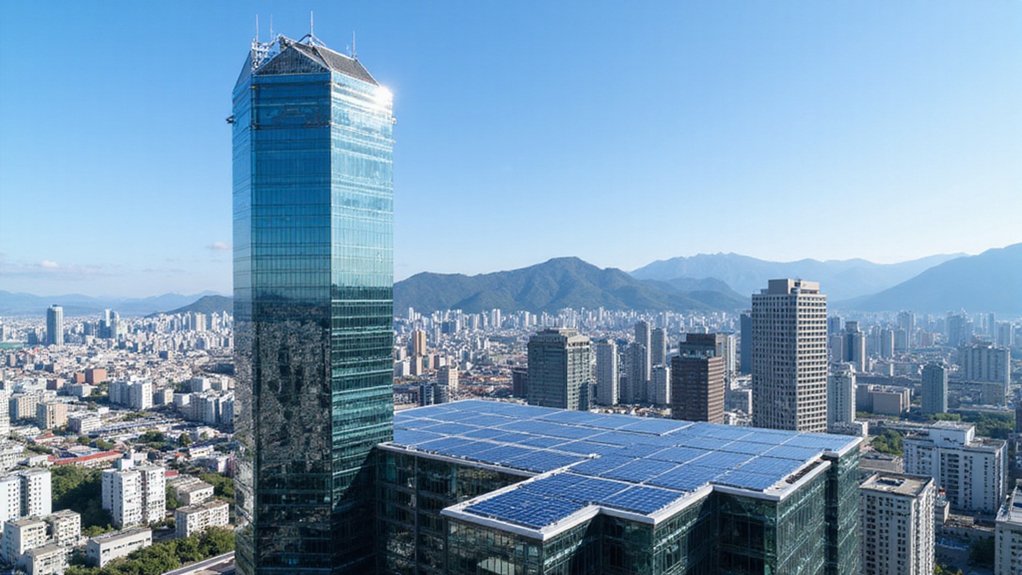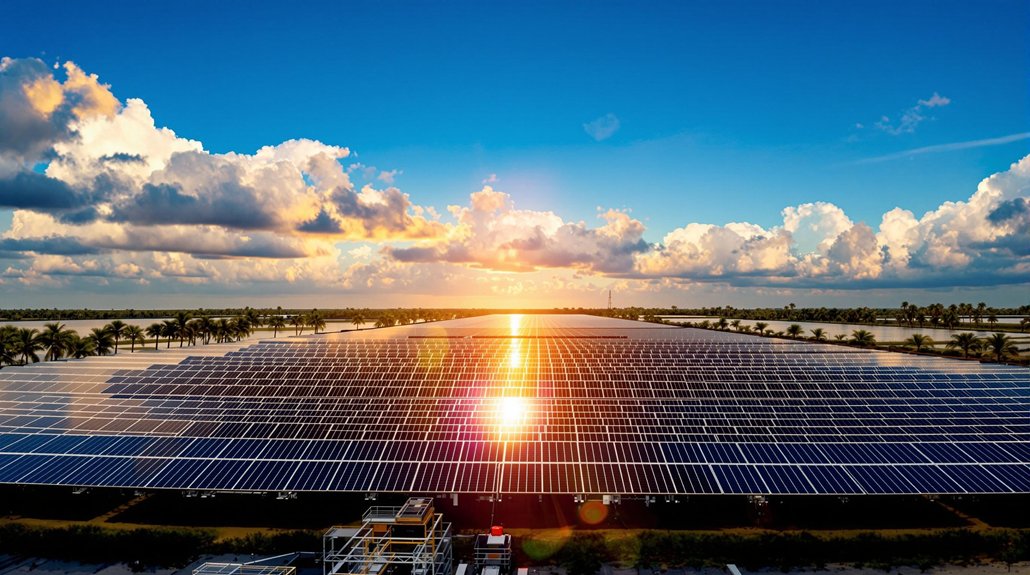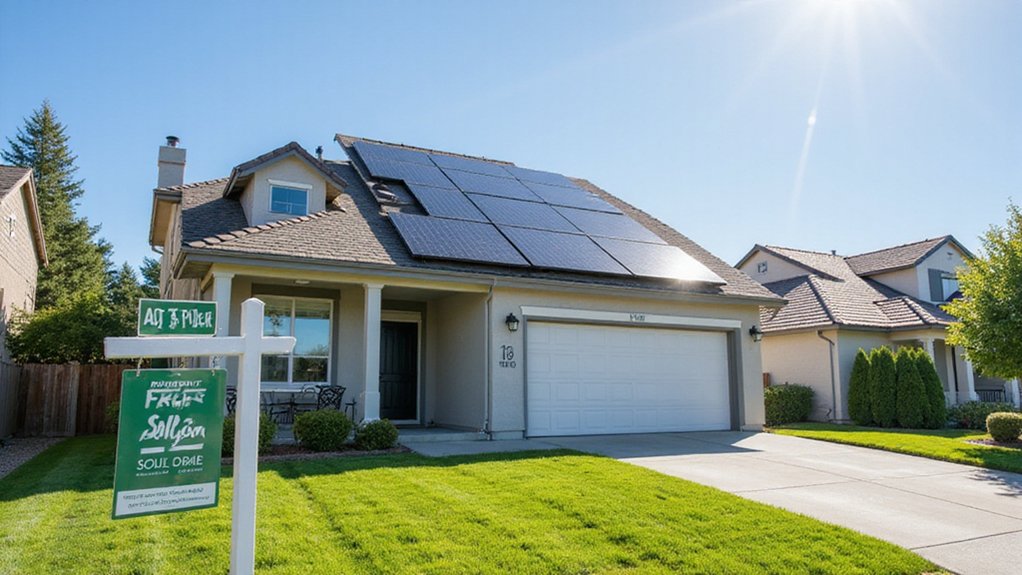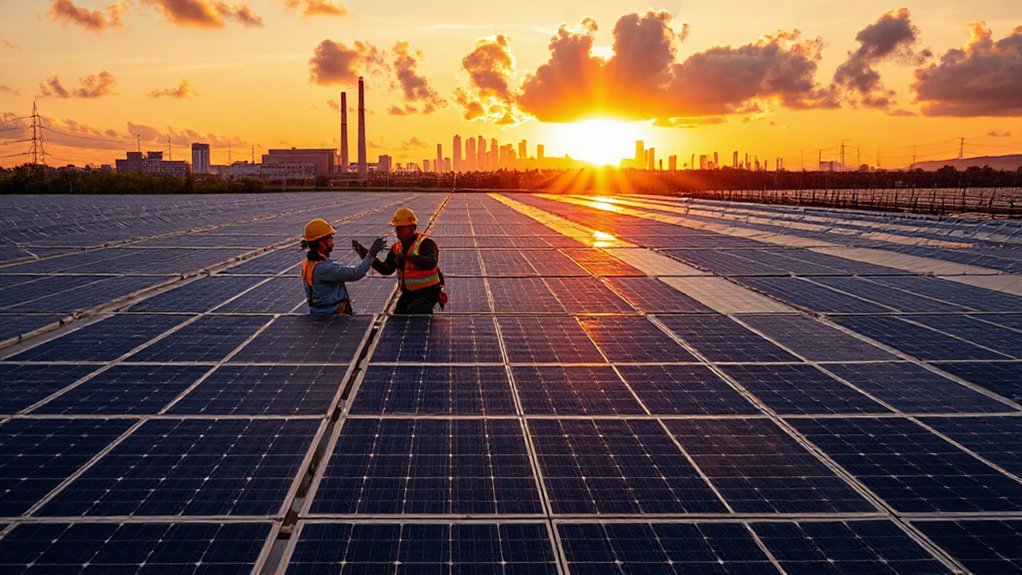Taiwan has enacted a bold new policy requiring all large buildings to install solar power systems. The mandate affects new structures, renovations, and expansions over 1,000 square meters. For every 20 square meters, builders must add 1 kilowatt of solar capacity. This step supports Taiwan’s 2050 net-zero emissions goal. While construction costs may increase, the policy aims to reduce fossil fuel use and boost the solar industry. What does this mean for Taiwan’s energy future?
Taiwan has revealed a new solar power mandate that will transform how buildings are constructed across the island nation. The draft regulation, released by Taiwan’s Ministry of the Interior in February 2025, requires new buildings, expansions, and renovations with floor areas of 1,000 square meters or more to install solar power systems.
Under the new rules, builders must install 1 kilowatt of solar capacity for every 20 square meters of floor area. This mandate is part of Article 12-1 of Taiwan’s Renewable Energy Development Act updated in June 2023. Solar panels can be installed on rooftops, awnings, or ground-level infrastructure.
Taiwan’s solar mandate requires 1 kW of capacity per 20 square meters, with installation options including rooftops, awnings, and ground-level areas.
Not all buildings must follow these rules. Religious buildings, funeral facilities, and structures storing hazardous materials are exempt. Buildings that don’t receive enough sunlight or where solar installations aren’t technically possible can apply for waivers. Applicants seeking exemptions must provide valid documentation including a power-generation assessment.
The draft will undergo a 60-day public consultation period after its publication in the official gazette. The Ministry will review feedback before finalizing the regulation, with the Executive Yuan determining the final implementation date.
Technical requirements for the installations vary by region. Minimum annual power generation standards range from 543 kWh to 625 kWh depending on local solar potential. The new calculation method bases requirements on a building’s first-floor area rather than just rooftop space.
Buildings that don’t comply won’t receive construction or occupancy permits. Exemption requests must include supporting documentation and may require verification from designated institutions.
The mandate supports Taiwan’s goal to achieve net-zero emissions by 2050. The government aims to add 8.2 GW of solar and offshore wind capacity by 2026 as part of its broader renewable energy strategy. It’s expected to increase distributed solar generation capacity, create market opportunities for local solar equipment manufacturers, and stimulate job growth in the solar sector.
While the regulation adds costs for developers of large buildings, it helps reduce Taiwan’s dependency on fossil fuels, meets climate commitments, and promotes sustainable building practices throughout the island’s construction industry. This approach appears promising as other nations like South Africa have seen cost reductions of up to 76% for solar energy, making renewable installations increasingly viable.
References
- https://www.pv-magazine.com/2025/05/02/taiwan-proposes-mandatory-solar-standards-for-new-expanded-buildings/
- https://www.taipeitimes.com/News/taiwan/archives/2025/02/25/2003832467
- https://www.ocac.gov.tw/OCAC/Pages/Detail.aspx?nodeid=329&pid=73048296
- https://www.pv-magazine.com/2025/02/25/taiwan-proposes-rooftop-pv-mandate-for-big-buildings/
- https://focustaiwan.tw/business/202502240022








